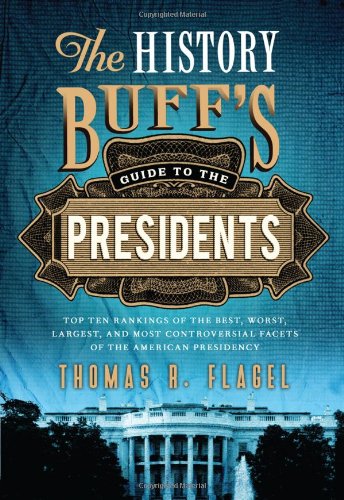


Price: $16.99 - $9.99
(as of Mar 31, 2025 19:00:03 UTC - Details)
The Best to Worst Presidents: A Comprehensive Review
Introduction
When it comes to evaluating the leaders of a nation, opinions often vary widely. From the best to the worst presidents, each figure has left a mark on history, shaping the political landscape for generations to come. In this article, we will explore a curated list of presidents, discussing their achievements and shortcomings. This review aims to provide insight into why certain presidents are celebrated while others are criticized. Whether you are a history buff or just curious about political leadership, this guide will help you understand the complexities behind each presidency.
Understanding Presidential Rankings
What Makes a President Great?
When we talk about the best presidents, we often look for specific qualities that define greatness. These may include leadership during crises, the ability to unite a nation, and significant contributions to social justice and economic growth. In this section, we will delve into the traits that make presidents stand out as exemplary leaders.
The Role of Historical Context
To fully appreciate the achievements of various presidents, we must consider the historical context in which they served. Different eras present unique challenges and opportunities. This section will examine how the times influenced presidential decisions and public perception.
The Best Presidents: Icons of Leadership
Abraham Lincoln: The Great Emancipator
Abraham Lincoln is often hailed as one of the greatest presidents in American history. His leadership during the Civil War and the Emancipation Proclamation solidified his place in history. Lincoln’s ability to navigate the nation through its darkest hours showcases his remarkable leadership skills.
Franklin D. Roosevelt: A Beacon of Hope
Franklin D. Roosevelt transformed America during the Great Depression. His New Deal policies provided relief and recovery, demonstrating a commitment to improving the lives of citizens. FDR's ability to communicate effectively and inspire hope was crucial during a time of uncertainty.
George Washington: The Founding Father
As the first president, George Washington set the standard for future leaders. His decision to step down after two terms established the precedent of presidential term limits. Washington's leadership style emphasized unity and integrity, making him a model for future presidents.
The Middle Ground: Presidents with Mixed Legacies
Thomas Jefferson: A Visionary with Controversies
Thomas Jefferson is celebrated for his role in drafting the Declaration of Independence and promoting individual rights. However, his ownership of slaves and views on race complicate his legacy. This section will explore the duality of Jefferson’s contributions and flaws.
Harry S. Truman: A Tough Decision-Maker
Harry Truman faced significant challenges, including the end of World War II and the beginning of the Cold War. His decision to use atomic bombs remains controversial, yet his commitment to civil rights and rebuilding Europe after the war is noteworthy. Understanding Truman’s complex legacy offers valuable insights into leadership under pressure.
The Worst Presidents: Lessons in Leadership
Andrew Johnson: A Presidential Misstep
Andrew Johnson's presidency is often viewed as a failure, primarily due to his opposition to Reconstruction efforts. His lack of vision and inability to unite a divided nation led to significant setbacks for civil rights. This section will analyze the lessons learned from Johnson’s presidency.
Warren G. Harding: Scandals and Inaction
Warren G. Harding’s term was marred by scandals, including the Teapot Dome scandal. While he promoted a return to normalcy after World War I, his administration's lack of action on critical issues left many disappointed. This analysis will highlight the importance of accountability in leadership.
The Impact of Presidential Decisions on Society
Economic Policies and Their Effects
Presidential decisions on economic policies can have lasting impacts. This section will discuss how various presidents influenced the economy through their choices, examining both successful and detrimental policies.
Social Justice and Civil Rights Initiatives
Presidents play a crucial role in advancing social justice and civil rights. This section will explore how different administrations have tackled issues related to equality and justice, highlighting both progress and setbacks.
Conclusion
In conclusion, the evaluation of presidents from best to worst reveals much about leadership, historical context, and the impact of decisions on society. Understanding the qualities that define great leadership can provide valuable lessons for future leaders and citizens alike. Whether one agrees or disagrees with specific rankings, the discussion around presidential legacies is essential for grasping the complexities of governance. By learning from the past, we can better navigate the future of our nation.
Did you know that Warren G. Harding played poker in the White House at least once a week? Or that Richard Nixon was a Quaker? The History Buff's Guide to the Presidents takes a peek behind the scenes, revealing everything you ever wanted to know about the families, personal habits, and social lives of the most powerful job in the world. Author Thomas R. Flagel's unique perspective on the presidents makes this an essential book for the merely curious and hardcore history buffs alike. From George Washington to Barack Obama, Flagel's top ten lists compile the most religious presidents, the biggest scandals, and more to present a comprehensive history of the American presidents.
Do You Think You Know The Presidents?
Top Ten Presidential PastimesTop Ten Most Controversial ElectionsTop Ten Assassinations and AttemptsTop Ten Debt PresidenciesTop Ten Most Influential First Ladies
